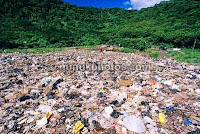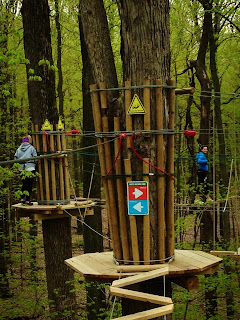Water Bottles Are No Good
This week I’d like to talk about:
o Bottled Water: How drinking tap water can help save you and the planet by Lucie Wanctin for Sustain: The Alliance for Better Food and Farming
I received an email from IU’s Department of Sustainability (I am on their list-serve, hence get informed when anything sustain-related occurs on campus). I was notified that there would be a class/discussion taking place about bottled water! Unfortunately, I could not attend because of schedule conflicts but I downloaded the lecture and the 28 paged booklet as a substitution and dove into it…
Let’s rewind.
How did bottled water arise? And how did it develop into a $4 billion/year market?
How did bottled water arise? And how did it develop into a $4 billion/year market?
The trend started in the 16th century FRANCE (of all places, of course) where “taking the cures”, aka bathing in spring and mineral waters was believed to have “curative” properties. This then, expanded to include drinking water which were drunk to supposedly provide medicinal or health properties and became known for being pure and cleansing.
The market for these has immensely grown across the world and has increased by 250% between 1994 and 2002 (500% in Asia and Australia).
But isn’t bottled water better for you?
What comes to your mind when you think of bottled water? Well, it's all a ploy.
o Marketing plays heavily on bottled water’s images of purity, peace, and nature— kind of like a remedy to our frantic lifestyles.
§ As society gets fatter wallets, people can afford to buy more bottled water, which has become very profitable in restaurants, and apparently has become a new must have accessory! So fetch!
§ Many people “simply” do not like the taste of tap water (aw, poor rich people :( as long as they are not part of the nearly billion people that lack access to safe drinking water!)
o Which brings me to health
§ Water companies draw our attention to any health benefits bottled water can provide, such as minerals and, ooh, electrolytes!
· (Side note: the World Health Organization states “Although certain mineral waters may be useful in providing essential micro-nutrients, such as calcium, WHO is unaware of any convincing evidence to support the beneficial effects of consuming such mineral waters”).
§ As a matter of fact, bottled waters have potential health risks to us…
· People are advised (by the French senate, nonetheless… (quel culot!)) to switch brands of bottled water regularly because of some minerals that may be harmful if consumed in high doses.
· Sodium levels are as high as 18 miligrams per litre in Fiji water (no more Fiji for the Gundermanns) when 6 grams is the highest recommended amount per day.
· Benzene, a carcinogen, was found in Perrier water in 1989 and in March 2004, bromate was in Dasani water…BROMATE!
· In addition to contaminants companies make us drink for their own benefit, the process of producing bottles (more information below) involve toxic chemicals that transfer into the whatever it is in contact with. Plastic can also absorb airborne chemicals. Yeesh!
§ …and to the environment:
· The processing, packaging, transportation, sale, and disposal of bottled water require a considerable amount of energy use and pollution.
o The chemicals used to make them, derive from crude oil (yummy), which takes several hundred gabillion years to disintegrate.
o Waste plastic is either incinerated, or buried in landfill sites
 |
| Landfill (google image) |
 |
| Landfill (google image) |
This link is a picture of how bottles are made and a comparison between water bottles and tap water.
Next week, I will talk about Recycling and alternatives to drinking from bottles (the continuation of the article).
Until then, stay jolly, healthy, and plastic bottles free everybody!
J.
Until then, stay jolly, healthy, and plastic bottles free everybody!
J.

Comments
Post a Comment